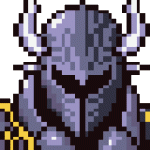@Strewya Your words are a bit aggressive/confrontational. I know you most likely didn't mean any offense and there was none taken. But someone could easily get offended, especially when you're assuming you know something about their work for a fact but you only have a basic understanding. I can take the heat regardless, jus pointing it out.
Sorry if they came across that way, i was trying to be as much to the point as possible. The only people who would be offended by offering a different perspective and direct constructive criticism are the ones who can't take it.
You're over simplifying my concept by assuming you know the extent of the anti macro code. I explained it in simple terms and left out as much fluff as possible cuz not everybody wants to hear the technical side of things. There are plenty of checks and balances/measures put in place to make sure it doesn't punish proper players. I won't go into details cuz I honestly don't like having to reiterate technical aspects when they are misunderstood (don't mind doing so with concept/design stuff tho). If and when I get to a physical development point and this codes theory is implemented, I plan on doing extensive Q&A/testing on this specific aspect to make sure there are no unintended effects/bugs.
Ofcourse I'm assuming, you haven't given any info on the core of the "anti-macro" code, which is the actual detection process, only info on how you'd purge unneccessary info. If you provide more information on how you're planing on detecting these repeating actions without mistaking players for macros or macros for players, maybe people can give you more advice on it and more accurate predictions.
Designing things is all fine and dandy, but it often ignores things such as complexity, language barriers, your own knowledge limits, the effort required to get it working as intended (which is most often more than expected, for instance i thought just yesterday that i'd need half an hour to do a small script for fixing some subtitles for a tv show, ended with 2+ hours until i got it working) and whether it's worth that effort.
As for your comment that not everybody likes to hear about the technical aspects, i agree. However, most people on this forum like to *see* the technical aspects (those who don't would just skip that section). That's why your technical aspects are misunderstood, and if you'd post some (pseudo)code, the misunderstanding would go away.
Reason I emphasis "extensive combat" is because irl, I can still fight with bruises, just wouldn't wanna get hit or I'd probably stagger/flinch lol.. I've gone into sparring matches/fights while being bruised and I know for a fact that's what its like.
Have you ever been in a fight with a twisted ankle? A broken arm? Have you ever been in a sword fight where the opponent slashed you across the arm or chest? You have said numerous times that you train in martial arts, but have you ever fought an actual fight where it's not in a controlled fashion (dojos, trainings and such), and where the opponent is trying to seriously injure you and maybe even kill you, perchance with a sword or a gun?
If you have, then you probably know what i'm gonna write in my next paragraph, so feel free to ignore it.
Some time ago, in a thread i don't really remember the title of, miss sunandshadow wrote something in the lines of: "in real life, when the human body suffers injuries, it tends to perform worse as time goes on". Getting slashed across your chest/arm with a sword tends to make your arm either useless or really bad to do combat actions with, depending on the severity of the injury. Getting shot at with a gun will either outright kill you, make you unable to do anything due to the pain, die soon afterwards or severly impact your ability to move/continue fighting, also depending on where you got shot. Slight bruises are magnitudes less of a problem than bleeding to death during a fight is.
This is one of the reasons the majority of games tend to abstract the health system into a single health bar, without limiting your characters performance. If your system doesn't limit character performance due to injuries, then it's not realistic, so you probably shouldn't call it that. If your system *does* limit character performance due to injuries, then as soon as your character makes a mistake during a sword fight, he's going to die. If he manages to survive the fight and beats his opponent in spite of his serious injuries (adrenaline rush and such), then he might not be able to think straight and clean his wounds after bleeding out so much. If he does, then your system is not realistic, so you probably shouldn't call it that

You get the point.
Also, if you're really going to make it as realistic as in my examples, then your game will severly punish players who have not mastered your control scheme or if their opponent got a lucky hit (having any sort of chance/RNG system here would be a very bad idea imho).
The fast forward mechanic is a good solution to not having to wait all that time to heal back up, and a nice touch, but it would fall short if the combat+health system is too realistic.
If you were going into a situation where proper tools/equipment were required (baking a cake> oven mitts) you wouldn't attempt it otherwise right?
With that thought in mind, would you go into a gun fight without a gun or bulletproof vest/body armor?
I wouldn't jump into a situation IRL if my acceptable state after said situation would be half-dead/in critical condition.
In A.E. I want the players to use realistic judgment according to how confident they feel about their own skills as well as their characters capabilities.. If I knew I could walk into a dungeon irl cuz my gear would protect me against the zombies inside and I was confident I had the fighting skills to take them on I would charge in there xD.. I wouldn't expect to need instant recovery aside from resting and catching my breath.. You wouldn't charge into a situation, or stick around for one where you were gonna barely make it out alive would you?
I agree, i wouldn't ever do that irl even if i had the required equipment. I don't have the constitution for that, nor the training, and neither does more than 70% of the worlds population (number straight out of my ass, but it's a good assumption

). The risk is too high. Games are here to provide a no-risk experience. However, that experience needs to be rewarding, otherwise players will, after a few deaths, move on to a game which is more rewarding. Unless your game is in the roguelike genre, where death is part of the fun... But imho that is really hard to pull off.
Based solely on the info you've given so far, my assumption is players will probably die after their first few fights, unless they're fights with wooden swords. But those can hurt too, even break arms if used right.
casting a spells isnt simple for both the FFC user and the default player either. Cast time plays a big role ia weaving. Increasing your speed with the FFC would still cause it to be hard.
If casting a spell is hard, then the results should be worth the effort, otherwise noone would cast them. Something to have in mind





